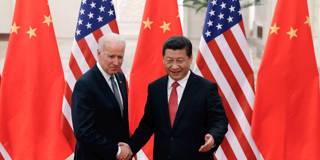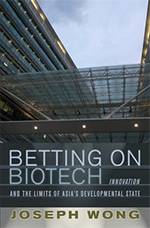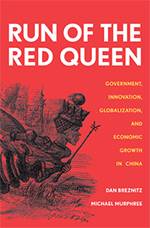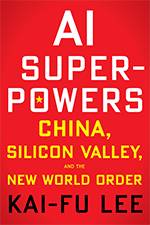OnPoint Subscriber Exclusive

Yuen Yuen Ang
Says More…
This week in Say More, PS talks with Yuen Yuen Ang, Associate Professor of Political Science at the University of Michigan, Ann Arbor.
Project Syndicate: You have argued that, once US President Joe Biden restores his country’s commitment to defending a liberal global order, Chinese leaders will curb their bid for international leadership, assuaging American paranoia about China’s rise. This could facilitate cooperation, including, as you suggested last April, in technology. Following Biden’s first major foreign-policy speech, how likely is such a sanguine scenario? In what areas would both sides view cooperation as beneficial?
YYA: The Trump administration’s bluntly hawkish stance toward China succeeded in winning over anti-China voters, who assumed that Biden would be too soft on the country. In reality, as Biden’s speech indicates, he is prepared to be equally, if not more, vigilant about China’s “growing ambitions” to challenge US primacy.
But, unlike Trump, Biden appears to welcome a more nuanced, targeted approach, whereby the US competes with China in areas where it must, while still leaving room for cooperation. For Biden, the goal is not only to manage relations with China, but also to restore America’s standing as a rational, responsible global power. That is why, in his speech, he added, “But we are ready to work with Beijing when it’s in America’s interest to do so.”
Ang recommends
We ask all our Say More contributors to tell our readers about a few books that have impressed them recently. Here are Ang's picks:
-

Betting on Biotech: Innovation and the Limits of Asia’s Developmental State
by Joseph Wong
This book argues that, although Asian developmental states accelerated industrial catch-up during the twentieth century, that playbook no longer applies in the knowledge economy, where policymakers are forced to make “expensive bets in areas about which they know very little,” such as biotechnology. In the age of technological catch-up, state intervention in the economy is frustrated by tremendous uncertainty.
-

Run of the Red Queen: Government, Innovation, Globalization, and Economic Growth in China
by Dan Breznitz and Michael Murphree
This book contains so many interesting insights that I had to stop highlighting them all, lest the pages become inundated with neon-yellow ink. The authors show how China has excelled in what they call “second-generation innovation” – applying established technologies to create new products and better manufacturing processes – rather than cutting-edge “novel innovation.” They also highlight the divergence between national and local innovation-promoting policies.
-

AI Superpowers: China, Silicon Valley, and the New World Order
by Kai-Fu Lee
In this provocative page-turner, artificial-intelligence scientist and investor Kai-Fu Lee argues that China will become the next AI superpower sooner than most Westerners think. In his view, we are living in an age when breakthrough technologies are being implemented to solve a broad range of practical problems, and in this context, China has a commanding lead, thanks to its hyper-competitive entrepreneurs, supportive government, and abundant consumer data.
From the PS Archive
From 2019
In “China’s Corrupt Meritocracy,” Ang explains how cronyism and economic success go hand in hand under the Communist Party of China’s rule. Read more.
From 2020
In “Is Political Change Coming to China?”, Ang sees three possible scenarios in which Xi Jinping’s hold on power is weakened or even broken. Read more.
Around the web
In this interview with Harvard’s Fairbank Center for Chinese Studies, Ang underscores the paradoxes that define China’s political economy – and explains how its crony capitalism really works. Listen to the podcast.